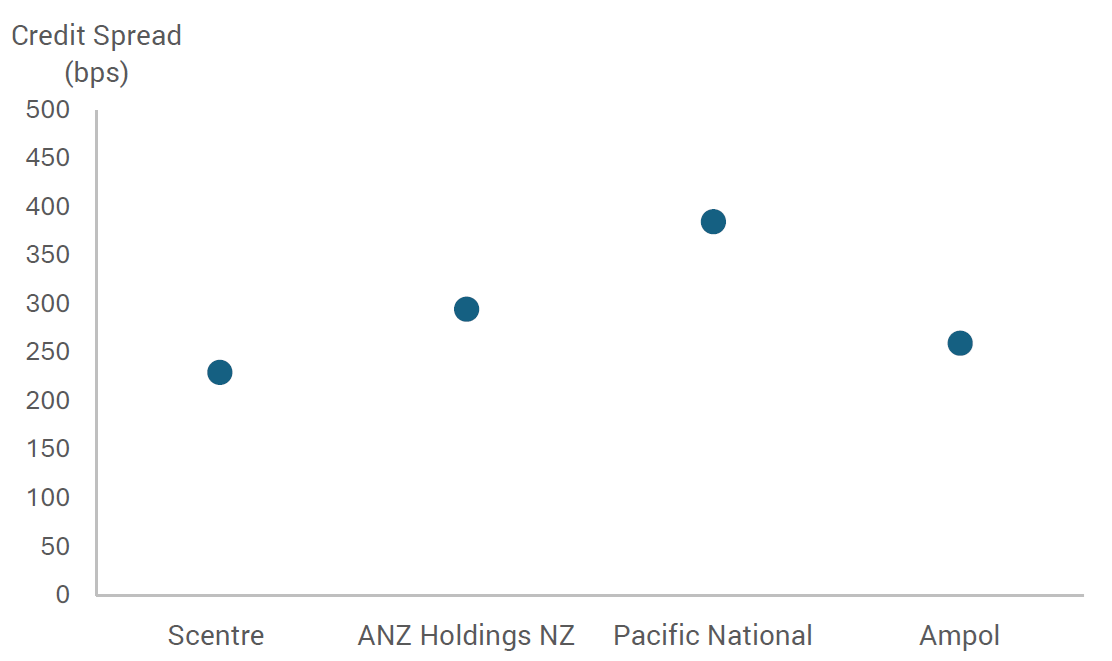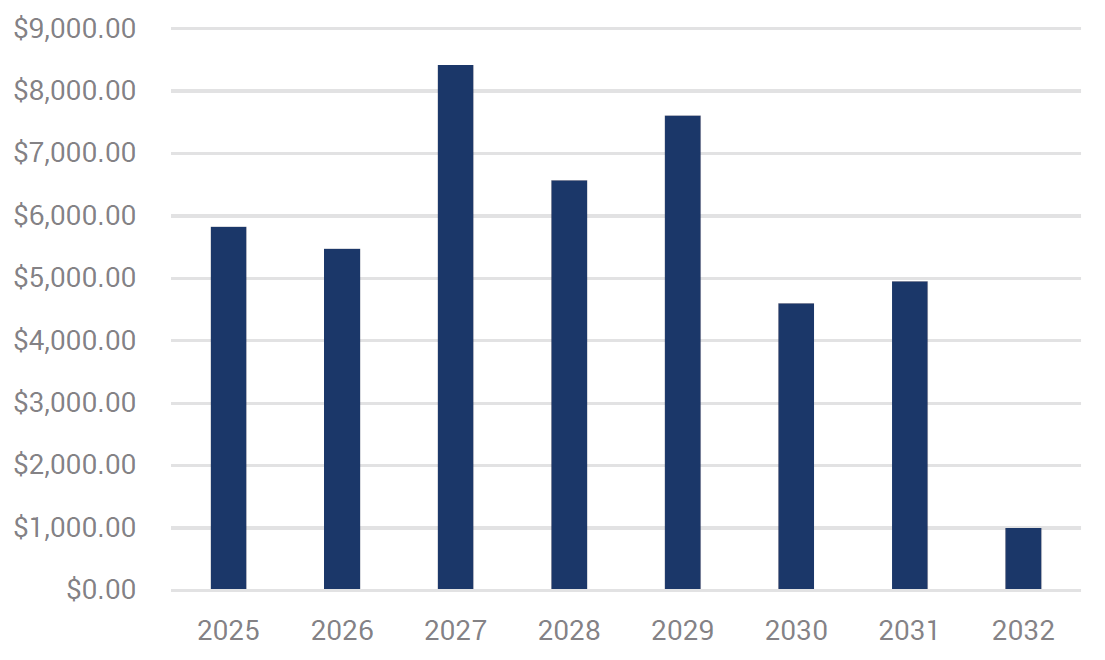Rotations aren't just happening in stocks - they're also happening in this asset class
At the start of 2024, we anticipated a ‘higher-for-longer’ environment, which would be favourable for investment returns in Australian credit. This view proved correct, with the Reserve Bank of Australia (RBA) holding the cash rate steady at 4.35% and investment grade credit generating equity-like returns.
Throughout the year, market volatility, driven by expectations of interest rate movements, created opportunities in duration management, yield curve positioning, and credit strategy (refer Chart 1).
Chart 1 – One year Bank swap rate

Source: Bloomberg – December 2024
Interest rates and the outlook for 2025
Interest rate movements play a crucial role in determining credit spreads because they affect the overall cost of borrowing and the yield environment for fixed income securities. Over the past year, we observed a noticeable shift in investor behaviour towards Australian credit, marked by a widening of the inverse relationship between spreads and interest rates. This volatility has driven investors to prioritise yields over spreads, such as CBA Tier 2, offering yields around 6% despite narrower credit spreads at that time (refer Chart 2). For some investors, yields appear to have taken precedence over credit spreads as a primary consideration.
Chart 2 – CBA Tier 2 ASW spread vs Australian 10-year government bond yield

Source: Bloomberg – December 2024
Looking ahead to 2025, we expect the RBA to cut rates four times, bringing the cash rate to 3.35%. This reduction in rates should support strong returns in investment grade credit, though the ‘higher-for-longer’ rate environment will persist. Despite rate cuts, rates will remain elevated compared to the near-zero rates seen during the pandemic.
Maybe a rotation is taking place
The fixed income market continues to attract significant new inflows, a trend that we expect to continue into 2025. One of the key drivers of this influx is the relative yield advantage offered by fixed income compared to equities. For example, US BBB credit currently provides a 1.8% yield premium over the S&P 500, while Australian BBB rated credit offers a yield premium of approximately 0.7%. Yield premiums such as these often indicate that equities may be overpriced—a signal that has historically preceded challenging periods for equity markets.
Chart 3 – Fixed Income yields are compelling

Source: Bloomberg & YarraCM – November 2024
Return of corporate hybrids
Corporate hybrid issuance, which has been subdued in recent years, is expected to see a resurgence in 2025. Companies like Scentre (ASX: SCG), ANZ (ASX: ANZ), and Ampol (ASX: ALD) began re-entering the hybrid market in late 2024, offering attractive yields for investors (refer to Chart 4). Corporate hybrids, which combine features of debt and equity, offer issuers a versatile funding tool while providing investors with yields 1.7 to 2.0 times higher than senior credit spreads.
These instruments are likely to play an increasingly important role in funding capital-intensive projects, particularly those related to the energy transition. However, issuer credit quality remains paramount when navigating this space.
Chart 4 – Recent corporate hybrid deals have been attractive

Source: YarraCM – December 2024
Navigating the AT1 transition
One of the most significant surprises in 2024 was the Australian Prudential Regulation Authority’s (APRA) decision to phase out AT1 hybrids issued by banks.
While this move disappointed market participants, the planned transition of $44bn worth of AT1 securities to Tier 2 capital by 2032 is generally seen as manageable (refer Chart 5).
Chart 5 – AT1-Redemption Profile to 2032 (A$bn)

Source: Bloomberg & YarraCM
A key consideration is whether the transition of certain AT1 securities issues in 2025 and 2026 will be allowed to roll out to 2031/32. According to APRA’s letter dated 9 December 2024, banks with surplus AT1 up to 1 January 2027 are expected not to issue new AT1 securities. All banks will need to submit plans to APRA by 31 March 2025. If rolling of AT1 securities does occur in 2025 or 26, investors may find opportunities to purchase these securities at attractive credit spreads.
Strong returns ahead in 2025
Australian investment-grade credit remains well-positioned for another strong year in 2025. A supportive macroeconomic environment, easing monetary policy, and healthy balance sheets should provide a solid foundation for continued credit market growth. As households remain resilient and investor interest in credit grows, we anticipate that the “good times” for Australian credit will roll on through 2025.
Access to regular, stable income
The Yarra Enhanced Income Fund seeks to deliver higher returns to investors than traditional cash management and fixed income investments. Learn more via the Fund profile below, or by visiting Yarra Capital's website.

3 stocks mentioned
1 fund mentioned

